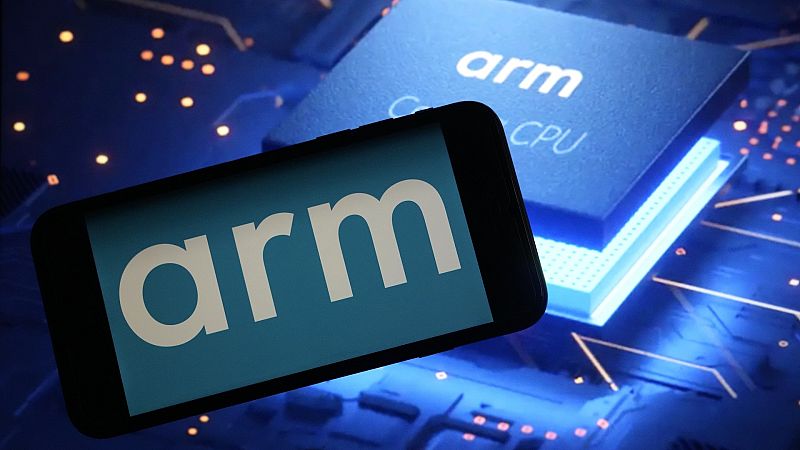Arm shares fall as outlook narrows amid concerns of a slowdown in AI demand

Arm reported earnings for the December quarter that significantly exceeded market expectations. However, the company provided conservative guidance for the current quarter, prompting a decline of more than 6% in its share price during extended trading hours on Wall Street.
Despite this, Arm remained an exceptional stock, largely insulated from the Chinese DeepSeek-led selloff in technology shares. As of market close on 5 February, shares of the British chip designer were up 39% on the Nasdaq.
Arm's quarterly earnings beat expectations
Arm's quarterly results were robust, with both revenue and profit demonstrating solid growth.
During the December quarter, the company reported revenue of $983 million (€945 million), up 19% year-on-year, well above the estimated $946.7m (€910m). Earnings per share stood at $0.39 (€0.37), exceeding the expected $0.34 (€0.33). Net income rose by 22% year-on-year, while the company's operating margin widened to 45%, up from 43.8% in the same quarter last year.
Within its revenue segments, royalty revenue increased by 23% year-on-year to $580m, while licence and other revenue grew by 14% annually to $442m.
CEO Rene Haas commented: "Arm delivered record third-quarter revenue driven by continued strong adoption of Armv9 and CSS compute platforms. With our high-performance, energy-efficient, flexible technology, Arm is a key enabler in advancing AI innovation and transforming the user experience from the edge to the cloud."
Arm holds a dominant position in the market, supplying semiconductor design platforms to the majority of smartphones worldwide. The company made its debut on the Nasdaq in September 2023 through an initial public offering, raising $4.9bn (€4.5bn) as it joined the global AI race.
However, Japanese conglomerate SoftBank still retains a 90% stake in Arm.
The company ceased reporting the number of Arm-based chips shipped from the June quarter onwards, with Haas explaining that Arm has shifted its focus towards higher-value, lower-volume markets such as data centre servers, AI accelerators, and smartphone application processors.
In its earnings report, Arm noted that it provides technology support for Nvidia's latest chip, Project Digits, which features cores based on the most advanced Blackwell GPU.
Arm is also one of the technology partners involved in Stargate, a $500bn (€481bn) AI infrastructure project announced by US President Donald Trump. Its majority owner, SoftBank, is a key financial backer of the project, alongside other technology firms, including OpenAI and Oracle.
A cautious outlook
Unlike other chipmakers, Arm develops hardware designs that enable communication between software and computer chips, generating revenue through licensing fees and royalties. As a result, the company has indirectly benefited from the AI boom. Despite this, Arm has narrowed its outlook for the full fiscal year 2025 and provided conservative guidance for the current quarter, sparking concerns about a potential slowdown in AI chip demand.
On the previous day, Nvidia's rival, Advanced Micro Devices (AMD), also issued a disappointing outlook for its data centre business.
Arm has forecast March-quarter revenue of between $1.18bn (€1.13bn) and $1.28bn (€1.23bn), with the midpoint slightly above analysts' estimates. It also narrowed its full-year revenue guidance to between $3.94bn (€3.79bn) and $4.04bn (€3.88bn), down from its previous forecast of between $3.8bn (€3.65bn) and $4.1bn (€3.94bn).
Today

